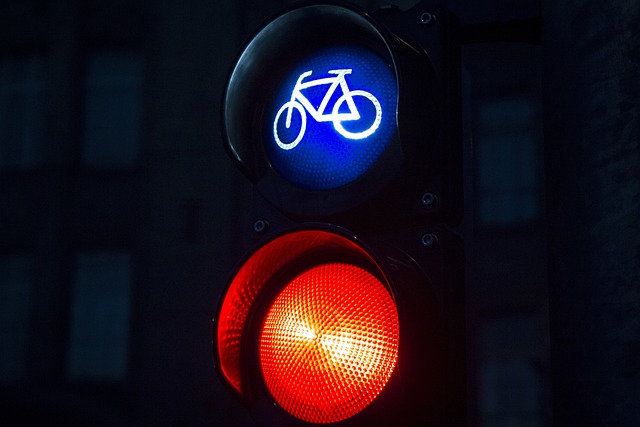Expert Advice: DUI on E-Bike in Colorado
In Colorado, riding an e-bike while impaired carries severe DUI consequences similar to driving a ca…….

In Colorado, riding an e-bike while impaired carries severe DUI consequences similar to driving a car intoxicated. A 0% blood alcohol limit applies to riders under 21. Consulting a specialized DUI on Bicycle Lawyer Colorado is crucial for understanding rights and navigating legal challenges unique to e-bike usage. These lawyers defend against charges, offer tailored advice, and ensure effective legal representation for cyclists facing biking DUI accusations.
Riding an e-bike in Colorado? Be aware, driving under the influence (DUI) laws still apply. This guide offers expert advice for e-bike riders, navigating Colorado’s unique regulations. From understanding blood alcohol limits to potential consequences and legal rights, you’ll gain crucial insights before hitting the trail. Don’t risk it – know your options with a dedicated DUI on Bicycle Lawyer in Colorado.
- Understanding Colorado's DUI Laws for E-Bikes
- What You Need to Know Before Riding
- Legal Implications and Potential Consequences
- Seeking Expert Advice from a DUI on Bicycle Lawyer
Understanding Colorado's DUI Laws for E-Bikes

In Colorado, driving under the influence (DUI) laws are strictly enforced, regardless of the mode of transportation. The state has clear guidelines regarding blood alcohol content (BAC) limits for individuals operating vehicles, including e-bikes. It’s essential to understand that while some may consider an e-bike as a more recreational or less threatening mode of transport than a car, the legal implications of operating it under the influence remain the same. A DUI on an e-bike in Colorado can result in penalties similar to those for driving under the influence of alcohol or drugs, such as fines, license suspension, and even jail time.
The primary distinction between DUI laws for bicycles and scooters lies in their speed and power. E-bikes often have a motor that assists with pedaling, potentially allowing for faster speeds than traditional bikes. This added functionality raises questions about the level of control and impairment when operating at higher speeds. A DUI Colorado lawyer specializing in these cases can provide expert advice tailored to e-bike riders, helping them understand their rights and navigate the legal complexities surrounding DUID Colorado.
What You Need to Know Before Riding

Before riding your e-bike in Colorado, it’s crucial to understand the state’s laws regarding driving under the influence (DUI), especially if you’re a minor. While a bicycle DUI is different from a car DUI, the legal consequences can still be severe. In Colorado, the blood alcohol limit for drivers under 21 years old is 0%, meaning any detectable amount of alcohol in your system can result in charges. This zero-tolerance policy applies to e-bikes as well, so riding while intoxicated carries the same risks as operating a motor vehicle.
If you’re facing DUI charges related to an e-bike incident, it’s essential to consult with a lawyer specializing in bicycle dui cases in Colorado. These legal professionals can provide expert advice tailored to the unique circumstances of cycling DUI laws, helping you navigate the system and protect your rights. Finding the best dui attorneys near me who have experience handling these matters is crucial for ensuring the best possible outcome.
Legal Implications and Potential Consequences

In Colorado, operating a motorized vehicle while under the influence (DUI) is strictly illegal and carries severe legal implications. If you’re facing DUI charges after an e-bike accident, it’s crucial to understand that the consequences can be just as significant as those for driving a car while intoxicated. A conviction could result in hefty fines, license suspension or revocation, and even jail time. The state has zero-tolerance policies for DUI offenses, which means there is no safe level of impairment when operating any type of vehicle, including an e-bike.
If you’ve been arrested for biking under the influence, it’s advisable to consult with a DUI on Bicycle Lawyer Colorado as soon as possible. These legal professionals specialize in defending clients facing unique challenges due to the relatively new trend of electric bicycle usage. They can guide you through the legal process, explain your rights, and help you navigate what to do after a biking DUI arrest. A skilled attorney will also be well-versed in mitigating potential consequences, which for Colorado bicycle crash DUI charges might include community service, vehicle impoundment, and mandatory alcohol education programs.
Seeking Expert Advice from a DUI on Bicycle Lawyer

Facing a DUI charge while riding an e-bike in Colorado can be a confusing and daunting experience. This is where seeking expert advice from a DUI on Bicycle Lawyer Colorado becomes paramount. These specialized legal professionals have an in-depth understanding of the unique challenges faced by cyclists, including the specific laws and regulations related to e-bikes. They can provide invaluable insights into potential defense strategies tailored to these circumstances.
A DUI on Bicycle Lawyer Colorado is equipped to navigate the complex legal landscape surrounding drug possession charges, which may arise during a cycling-related arrest. These lawyers know how to challenge the admissibility of evidence and employ innovative defense tactics specific to dui cycling cases. They stay updated on changes in bicycle dui laws in the state, ensuring their clients receive the most current and effective legal representation.
Riding an e-bike in Colorado while under the influence is not only illegal but also carries severe consequences. It’s crucial to understand the state’s DUI laws and their application to electric bicycles. If you’ve been charged, consulting a dedicated DUI on Bicycle Lawyer Colorado is essential for navigating the legal implications and potential penalties. They can provide expert advice tailored to your situation, ensuring the best possible outcome. Remember, knowing your rights and seeking professional guidance are key steps in protecting yourself.







